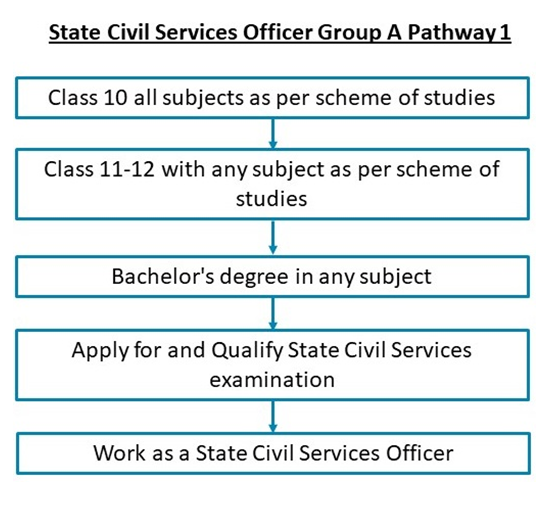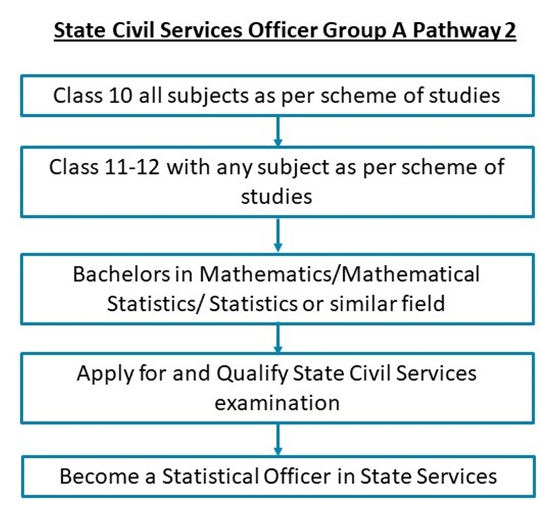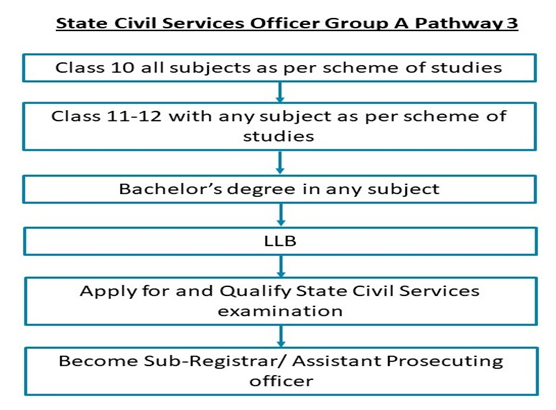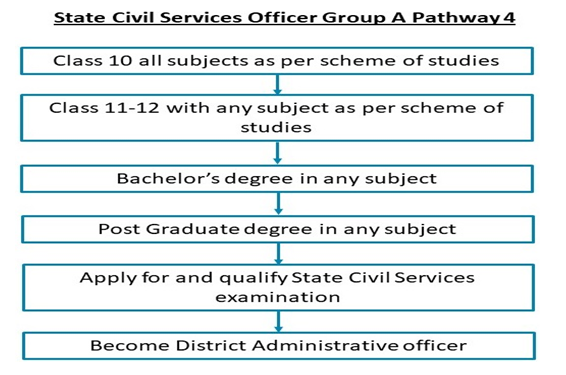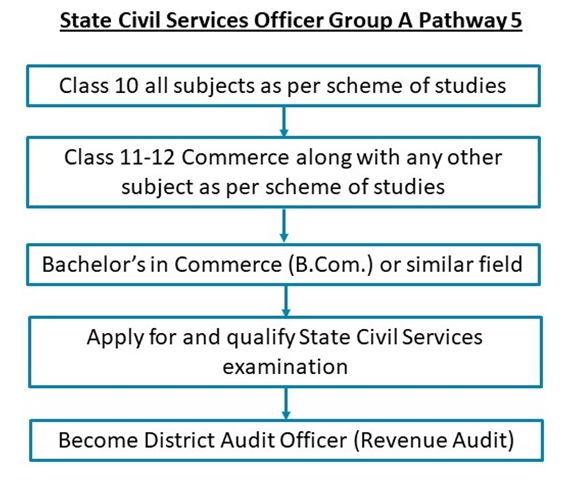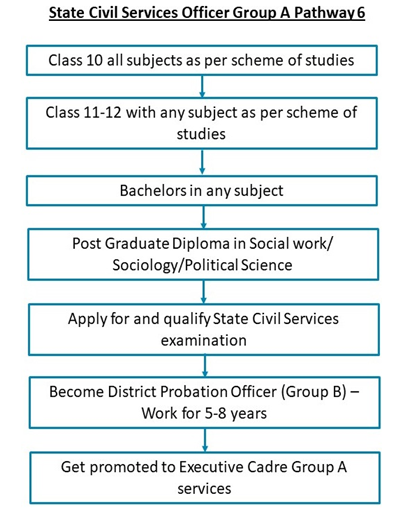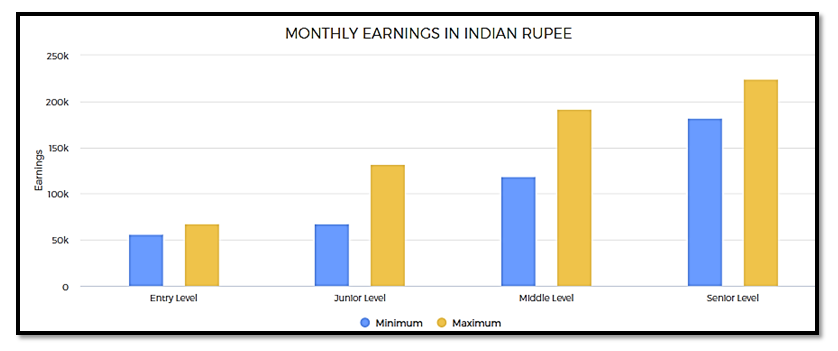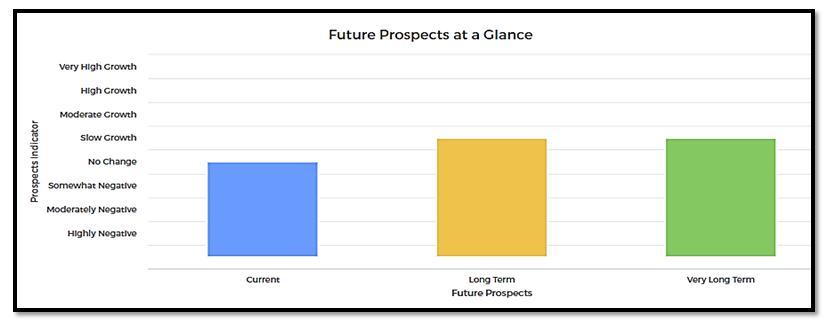State Civil Services Officer Group A
Entry Level Qualification
10
Career Fields
Government & Defense Services
For Specially Abled







 ,
,
Career Entrance Exam
About Career
PARTICULARS | DESCRIPTION |
Name | State Civil Services Officer Group A |
Purpose | Manage And Administer State Government Functions |
Career Field | Government & Defense Services |
Required Entrance Exam | UPSC IAS |
Average Salary | 700000 - 900000 Rs. Per Year |
Companies For You | Manipur Civil Service (MCS), State Civil Service (SCS) & Many More |
Who is Eligible | Class 10th Pass |
1. Civil Services Officers are one of the most important administrative authorities of India. Civil Services officer run governments’ administration – both at the central and the state level. The administration includes formulating government policies and plans, implementing projects, maintaining law and order systems, upholding government records, collecting and handling taxes & revenues.
2. The IAS (Indian Administrative Service), IPS (Indian Police Service), IFS (Indian Foreign Service), IFoS(Indian Forest Service) officers are part of the top Civil Services at the central level as well as at the state level (although they might be deputed to a State duty but they belong to the central Government Officers cadre) whereas the State Civil services Officers work under the supervision of the top bureaucrats at the executive level (the top bureaucracy comprises of IAS, IPS, IFS, and IFoS Officers or promoted State Civil Services Officers).
3. The State Civil Service officers (IAS and IPS) are a part of the administrative civil service under Group A state service of the Government of India. Officers of the State Civil Services are appointed at the state level and are recruited by the individual States Public Service Commission and all appointments to State Services (Group A) are made by the Governors of States.
4. The State Public Service Commission conducts State Civil Services examination in every individual state. As a State Civil Service officer you will be appointed to the following category of services according to your area of qualification:
State Civil Services, Group-A (SCS)
1. Andhra Pradesh State Civil Service (Executive Branch)
2. Arunachal Pradesh Civil Service-Executive Branch (APCS)
3. Assam Civil Service (ACS)
4. Bihar Administrative Service (BAS)
5. Goa Civil Service (GCS)
6. State Administrative Service (SAS)
7. State Civil Service (SCS)
8. Gujarat Administrative Service (GAS)
9. Haryana Civil Service (HCS)
10. Himachal Pradesh Administrative Service (HPAS)
11. Jharkhand Administrative Service (JAS)
12. Kashmir Administrative Service (KAS)
13. Karnataka Administrative Service (KAS)
14. Kerala Administrative Service (KAS)
15. Manipur Civil Service (MCS)
16. Mizoram Civil Service (MCS)
17. Meghalaya Civil Service (MCS)
18. Nagaland Civil Service (NCS)
19. Odisha Administrative Service (OAS)
20. Provincial Civil Service (Uttar Pradesh)
21. Punjab Civil Service (PCS)
22. Rajasthan Administrative Service (RAS)
23. Sikkim Civil Service (SCS)
24. Telangana Civil Service-Executive Branch (TCS)
25. Tamil Nadu Civil Service (TNCS)
26. West Bengal Civil Service (WBCS)
State Services (Group B)
1. Assistant Registrar Cooperative Societies
2. Block Development Officer
3. District Employment Officer
4. District Food and Supplies Controller/Officer
5. District Treasury Officer
6. District Welfare Officer
7. Excise and Taxation Officer
8. Tehsildar/Talukdar/Assistant Collector
The State Civil Services of both Group A and B are at the middle level of the Civil Services administration and provide assistance to the head officers who central cadre Administrative Officers. After working under the administration for 15-20+ years (as Sub-Divisional Magistrates/Deputy Collector/Land Acquisition/ Additional District Magistrates, Municipal Administrators, Under/Deputy Joint Secretaries, Deputy/Joint /Additional Directors or Assistant Commissioners in the State administration) the State Civil Officers could be nominated to the rank of an IAS officer. This is an option but not open to all State Civil Services Officers.
Key Roles and Responsibilities
As a State Civil Service officer under Group A and Group B, you would be involved in the following key roles and responsibilities:
1. You would be responsible for collecting land revenue and function as courts in matters of revenue and crime (revenue courts and criminal courts of executive magistrate), maintaining law and order, implementing Union and State Government policies at the grass-root level when posted at field positions.
2. You would act as the agent of the government on the field, i.e. to act as the intermediate between public and the government
3. You would be involved in handling the administration and daily proceedings of the government, including formulation and implementation of policy in consultation with the minister-in-charge, additional chief secretary/principal secretary and secretary of the concerned department.
4. You would be holding various posts at the sub-district level and district level while delivering various government services apart from conducting revenue administration and maintenance of law and order. You would work at the grass-root level of administration for policy implementation and policy formulation.
5. You would also monitor the implementation of programs related to planning and development of the blocks. Coordination of development and implementation of plans in all blocks of the district is provided by a Chief Development Officer (CDO).
6. You would be involved in the administration of the areas such as: Labour Policy and legislation, Safety, health and welfare of labour, Social security of labour, Policy relating to special target groups such as women and child labour, Industrial relations and enforcement of labour laws in the Central sphere, Workers' Education, Labour and Employment Statistics, etc.
7.You would be involved in the revision against the orders of Tehsildars and Officer-in-Charge, rural, regarding allotment of land and houses in rural areas; revision against the orders of the District Rent Officer, regarding allotment of houses and shops in urban areas and disposal of cases received from the Assistant Custodian (Judicial) regarding evacuee property.
8. You would perform revenue duties including the supervision and inspection of all matters from assessment to collection of land revenue; co-ordination of work of all officials in the subdivision, particularly in the departments of Revenue, Agriculture, Animal Husbandry and Public Health within the subdivision.
Career Entry Pathway
Class 10 all subjects as per scheme of studies - Class 11-12 with any subject as per scheme of studies – Bachelor's degree in any subject – Apply for and Qualify State Civil Services examination – Work as a State Civil Services Officer
After completing Class 10 all subjects as per scheme of studies and Class 11-12 with any subject as per scheme of studies, you can go for a Bachelor's degree in any subject. After graduation, you must apply for and qualify the State Civil Services examination and get selected as a State Civil Services Officer.
Class 10 all subjects as per scheme of studies - Class 11-12 with any subject as per scheme of studies – Bachelors in Mathematics/Mathematical Statistics/ Statistics or similar field - Apply for and qualify State Civil Service Examinations - Become a Statistical Officer in State Services
After completing Class 10 all subjects as per scheme of studies and Class 11-12 with any subject as per scheme of studies, you can go for Bachelors in Mathematics/Mathematical Statistics/ Statistics or similar field. After graduation you must apply for and qualify the state civil services examinations and become a Statistical Officer in a State Civil Service.
Class 10 all subjects as per scheme of studies - Class 11-12 with any subject as per scheme of studies – Bachelor’s degree in any subject – LLB – Apply for and qualify State civil services examinations – Become Sub-Registrar/ Assistant Prosecuting officer
After completing Class 10 all subjects as per scheme of studies and Class 11-12 with any subject as per scheme of studies, you can go for a Bachelor’s degree in any subject followed by a graduation in Law. After a degree in Law you must apply for and qualify State civil services examinations and become eligible for the post of Sub-Registrar/ Assistant Prosecuting officer.
Class 10 all subjects as per scheme of studies - Class 11-12 with any subject as per scheme of studies – Bachelor’s degree in any subject – Post Graduate degree in any subject – Apply for and qualify State Civil Services examination – Become District Administrative officer
After completing Class 10 all subjects as per scheme of studies and Class 11-12 with any subject as per scheme of studies, you can go for a Bachelor’s degree in any subject. You must have a Post Graduate degree to be eligible for the post of District Administrative Officer. After post-graduation, you must apply and qualify the State Civil Service examinations.
Class 10 all subjects as per scheme of studies – Class 11-12 Commerce along with any other subject as per scheme of studies – Bachelor’s in Commerce (B.Com.) or similar field – Apply for and qualify State Civil Services examination – Become District Audit Officer (Revenue Audit)
After completing Class 10 all subjects as per scheme of studies and Class 11-12 Commerce along with any other subject as per scheme of studies, you must go for Bachelors in Commerce (B.Com.) or a graduation degree in similar field. After graduation you must apply for and qualify State Civil Services examination and become District Audit Officer (Revenue Audit).
Class 10 all subjects as per scheme of studies - Class 11-12 with any subject as per scheme of studies – Bachelors in any subject – Post Graduate Diploma in Social work/ Sociology/Political Science – Apply for and qualify State Civil Services examination – Become District Probation Officer (Group B) – Work for 5-8 years – Get promoted to Executive Cadre Group A services
After completing Class 10 all subjects as per scheme of studies and Class 11-12 with any subject as per scheme of studies, you can go for Bachelors in any subject. After completing graduation you must pursue Post Graduate Diploma in Social work/ Sociology/Political Science or similar field. After completing your studies you can then apply for and qualify State Civil Service examination and become a group B District Probation Officer. Gain experience of at least 5-8 years and get promoted to the executive cadre Group A services.
Required Qualification & Competencies
1. In order to be eligible for State Civil Services examination, you must hold a graduation degree. The minimum age to be eligible for SCS exams is 19 years and the maximum age is 40 years (taken into account the minimum and maximum age ranges of almost all the states).
2. The State Civil Services examinations and recruitment are conducted by the individual states public service commission’s in India. But a common format for examination is usually followed by almost all the states. States Civil Services exam pattern and syllabus is similar to that of Union Public Service Commission (UPSC) but a few of the changes in exam pattern and syllabus are there. In some instances, proper knowledge and history of a particular state is also a part of the scheme with an additional competency in the regional language.
3. State Civil Services examinations in most of the states have total III stages of examinations. The First stage i.e. Preliminary exam comprises of two compulsory papers.
Paper 1
1. Current events of national and international importance.
2. History of India and Indian National Movement.
3. Indian and World Geography
4. Indian Polity and Governance
5. Economic and Social Development
6. General issues on Environmental Ecology, Biodiversity and Climate Change
7. General Science, Art, and Culture
Paper 2
1. Comprehension
2. Interpersonal skills
3. Communication skills
4. Logical reasoning and analytical ability
5. Decision-making and problem solving
6. General mental ability
7. Basic Numerical Ability & Data interpretation
The Main Examination comprises of seven papers in total in which two papers are language-based. Therefore sixth paper would include one regional/state language (for example- Bengali, Gujarati, Tamilian, etc.) and seventh paper would include the English language.
The first five papers in the Main Examination are:
Paper 1: Descriptive exam in the respective regional language of the state.
Letter writing, Précis Writing, Composition, and Translation from English to Bengali/Hindi/Tamilian/Gujarati and other state languages
Paper 2: Descriptive exam in the respective regional language of the state
Letter writing, Précis Writing, Composition and Translation from Bengali/Hindi/Tamilian/Gujarati and other state languages to English
Paper 3: General Studies I (Indian heritage and culture, History and Geography of the world, and Society with special reference to the respective state history and geography)
Paper 4: General Studies II (Governance, Constitution, Polity, Social Justice, International Relations with special reference to the respective state)
Paper 5: General Studies III (Technology, Economic Development, Biodiversity, Environment, Security, and Disaster Management with special reference to the respective state)
Paper 6: General Studies IV (Ethics, Integrity, Aptitude)
One of the most important aspects that students ignore while preparing for State Civil Services is that they consider the exam pattern and syllabus to be similar to that of UPSC exams. For State Civil services exams one has to focus on the subjects from the perspective of the state as well. Let’s take an example to understand this: in the exam conducted by the Tamil Nadu Public Service Commission, the subjects like history, geography, social issues and other topics that are part of the syllabus would have to be understood from an all-India perspective as well as from the perspective of Tamil Nadu state.
The Personal Interview or Personality Test attempts to assess the suitability of a candidate for the State Civil Services. It may assess the following attributes in a candidate (these are only indicative and do not comprise all the criteria):
1. Analytical and logical abilities
2. Balance of judgment
3. Compassion and empathy
4. Critical abilities
5. Deductive and Inductive Reasoning abilities
6. Ethical thinking
7. Integrity and morality
8. Intellectual abilities
9. Interpersonal abilities
10. Leadership abilities
11. Multi-faceted interests and depth of interests
12. Power of expression
13. Self-awareness or intra-personal abilities
14. Understanding of social issues and challenges
MINIMUM EDUCATION REQUIRED | MAXIMUM EDUCATION REQUIRED |
Under Graduate Undergraduate Degree / Honours Diploma / Graduate Diploma (equivalent to a Degree) Programs for which the minimum eligibility is a pass in Higher Secondary / Class XII School Leaving examination. | Post Graduate Postgraduate Degree / Diploma / Certificate Programs for which the minimum eligibility is a pass in Graduation / equivalent Diploma program like Honours Diploma or Graduate Diploma. |
Competencies Required
Interests
1. Enterprising: You should have interests for Enterprising Occupations. Enterprising occupations involve taking initiatives, initiating actions, and planning to achieve goals, often business goals. These involve gathering resources and leading people to get things done. These require decision making, risk-taking and action orientation.
2. Conventional: You should have interests for Conventional Occupations. Conventional occupations involve repetitive and routine tasks as well as fixed processes or procedures for getting things done. These occupations involve working more with data, systems, and procedures and less with ideas or creativity.
3. Social: You should have interests for Social Occupations. Social occupations involve helping or assisting others; these involve working with and communicating with people to provide various services; these may involve educating and advising others.
Abilities
1. Abstract Reasoning: The ability to understand ideas that are not expressed in words or numbers; the ability to understand concepts that are not clearly expressed verbally or otherwise.
2. Articulation: The ability to speak clearly so others can understand you.
3. Deductive Reasoning: The ability to apply general rules and common logic to specific problems to produce answers that are logical and make sense. For example, understanding the reasons behind an event or a situation using general rules and common logic
4. Emotional Intelligence: The ability to understand your own and others' emotions and feelings; empathy for others; adjusting your behavior or self-control and self-regulation according to others' emotions and situations.
5. Fluency of Ideas: The ability to come up with a number of ideas about a topic (the number of ideas is important, not their quality, correctness, or creativity).
6. Inductive Reasoning: The ability to combine pieces of information from various sources, concepts, and theories to form general rules or conclusions. For example, analyzing various events or situations to come out with a set of rules or conclusions.
7. Inter-Personal: The ability to build and maintain good relationships with others at workplaces and elsewhere.
8. Intrapersonal: The ability to clearly understand your strengths and weaknesses, what your capabilities are, what you can do and cannot do, what you like and dislike.
9. Numerical Reasoning: The ability to add, subtract, multiply, divide, and perform other basic numerical calculations correctly.
10. Oral Comprehension: The ability to listen to and understand information and ideas presented through spoken words and sentences.
11.0 Oral Expression: The ability to communicate information and ideas in speaking so others will understand.
12. Originality: The ability to come up with unusual or innovative ideas about a given topic or situation, or to develop creative ways to solve a problem.
13. Problem Sensitivity: The ability to tell when something is wrong or is likely to go wrong. It does not involve solving the problem, only recognizing there is a problem.
14. Selective Attention: The ability to concentrate on a task over a long period of time without being distracted.
15. Speed of Closure: The ability to quickly make sense of, combine, and organize information into meaningful patterns.
16. Verbal Reasoning: The ability to think and reason with words; the ability to reason out ideas expressed in words.
17. Written Comprehension: The ability to read and understand information and ideas presented in writing.
18. Written Expression: The ability to communicate information and ideas in writing so others will understand
Knowledge
1. Administration: Knowledge of various administrative and operational functions in managing an organization such as general administration, facility management, front office management, back-office management, etc.
2. English Language: Knowledge about English grammar, words, spelling, sentence construction, using English to communicate with others, reading in English, etc.
3. Law: Knowledge of laws, legal codes, legal procedures, regulations, Government orders, etc.
4. Politics & Governance: Knowledge about different political ideologies, political systems, and processes, governance standards and processes, constitutions, etc.
5. Public Administration: Knowledge about the formulation and implementation of the policies, plans, projects, and programs of a Government; knowledge about the management of Government or public organizations; management of people who work for a Government or Government organizations.
6. Vernacular Language: Knowledge about the grammar, words, spelling, sentence construction, etc. of at least one local language and using the language to communicate with others, reading, etc.
Skills
1. Active Learning: Focused and continuous learning from various sources of information, observation and otherwise for application in getting work done.
2. Active Listening: Giving full attention to what other people are saying, understanding the points being made by others, asking questions, etc.
3. Communication in English: Skills in communicating effectively in writing as well as verbally with others in English language.
4. Communication in local language: Skills in communicating effectively in writing as well as verbally with others in a local/regional language.
5. Coordination: Skills in working together with other people to get things done.
6. Critical Thinking: Skills in analysis of complex situations, using of logic and reasoning to understand the situations and take appropriate actions or make interpretations and inferences.
7. Directing: Skills in directing others' actions to get things done
8. Instruction: Skills in training others how to do something.
9. Judgment and Decision Making: Skills in considering pros and cons of various decision alternatives; considering costs and benefits; taking appropriate and suitable decisions.
10. Managing Financial Resources: Skills in determining how money should be spent to get the work done, and accounting for these expenditures.
11. Managing Human Resources: Skills in motivating, developing, and leading people as they work, identifying the best people for the job.
12. Negotiation: Skills in bringing others together and trying to reconcile differences.
13. Persuasion: Skills in persuading others to change their minds or behaviour.
14. Problem Solving: Skills in analysis and understanding of problems, evaluating various options to solve the problems and using the best option to solve the problems.
15. Reading Comprehension: Skills in understanding written sentences and paragraphs in work related documents.
16. Service Orientation: Skills in or keen interest to help and assist people
17. Supervising: Skills in Supervising and monitoring performance of others, businesses, and different projects.
18. Time Management: Skills in prioritizing work, managing time effectively.
19. Writing: Skills in communicating effectively in writing as appropriate for the needs of the readers.
Personality
1. You are always or mostly organised in your day-to-day life and activities.
2. You always feel secure in your surroundings and in most situations.
3. You are always self-satisfied or feel satisfied with your life in most situations.
4. You are a soft-hearted person sometimes.
5. You trust others sometimes but not always.
6. You are helpful to others sometimes.
7. You remain calm in difficult situations sometimes but some other times you are anxious.
8. You are imaginative sometimes.
9. You prefer to experience new things and have new experiences sometimes.
10. You act independently sometimes but do not do so in some other times.
11. You are friendly and outgoing sometimes, but not always. You prefer the company of people sometimes but not always.
12. You are caring, supportive, sympathetic and kind to others sometimes.
Career - Job Opportunities & Profiles
As a State Civil Service officer your initial appointment would be at a lower rank. In most states, you would be appointed as Deputy Magistrate or Deputy Collector on probation and after completion of 2-year of training, you will be posted as a Deputy Magistrate / Deputy Collector/ Sub-Divisional Magistrate. Positions may vary from State to State.
The State Civil Services examinations and recruitment are conducted by the individual states public service commission’s in India. Therefore once selected you will be placed under your choice of state. Following are the list of states that conduct State Civil and Administrative Services in India:
1. Andhra Pradesh State Civil Service (Executive Branch)
2. Arunachal Pradesh Civil Service-Executive Branch (APCS)
3. Assam Civil Service (ACS)
4. Bihar Administrative Service (BAS)
5. Goa Civil Service (GCS)
6. State Administrative Service (SAS)
7. State Civil Service (SCS)
8. Gujarat Administrative Service (GAS)
9. Haryana Civil Service (HCS)
10. Himachal Pradesh Administrative Service (HPAS)
11. Jharkhand Administrative Service (JAS)
12. Kashmir Administrative Service (KAS)
13. Karnataka Administrative Service (KAS)
14. Kerala Administrative Service (KAS)
15. Manipur Civil Service (MCS)
16. Mizoram Civil Service (MCS)
17. Meghalaya Civil Service (MCS)
18. Nagaland Civil Service (NCS)
19. Odisha Administrative Service (OAS)
20. Provincial Civil Service (Uttar Pradesh)
21.Punjab Civil Service (PCS)
22. Rajasthan Administrative Service (RAS)
23. Sikkim Civil Service (SCS)
24. Telangana Civil Service-Executive Branch (TCS)
25. Tamil Nadu Civil Service (TNCS)
26. West Bengal Civil Service (WBCS)
Career Growth
1. State Civil Services Grade A or Executive Cadre Officers are usually appointed as Deputy Magistrates or Deputy Collectors on probation and after completion of two years of mandatory administrative training, they start their career as Deputy Magistrate or as Deputy Collector or as Block Development (B.D.O.) Officers. They may also pass order in Executive Magistrate Court and execute some sections of the Criminal Court.
2. State Civil Services Grade A or Executive Cadre Officers perform various administrative functions at different levels of various departments of State Government. The highest position the State Civil Services Group A/ Executive Officers can attain is that of Departmental Secretary. In some States, a few posts of District Magistrate are reserved for these officers.
3. In some States, after completing their training, State Civil Services Grade A or Executive Cadre Officers serve at the tehsil level as Sub-Divisional Magistrates (SDMs). After that, they get promoted to first, City Magistrate, and later, Additional District Magistrate (ADM) or Additional Magistrate (AM). After a few years of service as they are get promoted to Chief Development Officer (CDO). A CDO looks after rural development. Then they get promoted as Additional Divisional Commissioners. At the state secretariat, State Civil Services Grade A or Executive CadreOfficers work as Special Secretaries, Joint Secretaries and, in some cases, Deputy Secretaries.
4. At a very senior level, with 20-30+ years of service, a few of the high performing State Civil Services Grade A or Executive Cadre Officers may also get nominated to become Indian Administrative Services (IAS) Officers.
5. In many states the SDMs and AMs usually deal with areas relating to land revenue, agriculture, forests, education etc. and work initially as Tehsildar/Talukdar/Assistant Collector, Excise and Taxation Officer, Assistant Registrar Cooperative Societies, Block Development Officer, District Employment Officer, District Food and Supplies Controller/Officer, District Treasury Officer, District Welfare Officer.
6. Almost every state has its own procedure of promotion of the State Civil Service Officers, therefore, the officers under certain state governments take a longer time to get promoted in comparison to other states. Although very few State Civil Service Officers are nominated for the rank of IAS.
Salary Offered
According to 7th pay commission,
1. At an Entry-level, as a State Civil Service Officer, in most states, you would earn around Rs.56,100 – 67,700 per month.
2. At Junior-level, as a State Civil Service Officer, in most states, you would earn around Rs. 67,700–1,32,000 per month.
3. At Middle-level, as a State Civil Service Officer, in most states, you would earn around Rs. 1,18,500–1,91,500 per month.
4. At senior most level, with an experience of more than 30+ years, you might be promoted to the post of IAS officers.
Monthly Earning In Indian Rupee
Entry Level | Junior Level | Mid Level | Senior Level | |||||
Min Earning | Max Earning | Min Earning | Max Earning | Min Earning | Max Earning | Min Earning | Max Earning | |
56100 | 67700 | 67700 | 132000 | 118500 | 191500 | 182200 | 224100 | |
1. Entry level: 0 - 2 years of work experience
2. Junior Level: From 1 to 12 years of work experience
3. Mid Level: From 5 to 20+ years of work experience
4. Senior Level: From 10 to 25+ years of work experience (there could be exceptions in some high-end technical, financial, engineering, creative, management, sports, and other careers; also in the near future, people will reach these levels much faster in many careers and in some careers, these levels will have no meaning as those careers will be completely tech skill driven such as even now, there is almost no level in a Cyber Security Expert’s job)
Work Activities
1. Addressing grievances and resolving conflicts: Handling complaints and grievance to resolve; resolving conflicts among co-workers or others at workplace or outside in relation to your work.
2. Analysing and interpreting data and information: Analysis of data and information to find facts, trends, reasons behind situations, etc.; interpretation of data to aid in decision making.
3. Assessing and determining compliance with standards, laws, rules and guidelines: Using relevant information, auditing information, processes and systems to determine whether organisations or people are complying with standards, laws, rules and guidelines.
4. Communicating with co-workers and others: Communicating with people in writing, verbally or otherwise inside your workplace and various other people who have professional relationships with your place of work including vendors, government officials, etc. or with people at large
5. Decision making and problem solving: Analysis of data and information; evaluation of alternative decisions and results of decisions; taking the right decisions and solving problems.
6. Developing and maintaining inter-personal relationships: Developing professional relationships with co-workers and others outside organisations and maintaining good relationships.
7. Estimating quantity, cost, time and resources: Estimating sizes, volumes, distance, and quantity; estimating and determining time, costs, and resources; estimating materials required to perform a task.
8. Getting Information and learning: Observing, hearing, reading, using computers, or otherwise obtaining information and learning from it.
9. Handling administrative activities: Handling various administrative tasks and managing day-to-day operations.
10. Inspecting situations, events, and people: Inspecting situations, events and people to understand the reasons and causes for the situation or events to happen; inspecting people to understand reasons behind their behaviour and actions.
11. Leading: Inspiring and motivating co-workers to work to achieve specific goals; enabling and facilitating others to perform tasks effectively; addressing issues and solving problems in order to help people perform well.
12. Managing and supervising: Managing and supervising work of others; setting goals; giving instructions; monitoring work performance, etc.
13. Monitoring use of resources: Monitoring and controlling use of resources like land and materials as well as spending of money.
14. Organising, planning and prioritising tasks: Planning and organising tasks in order to achieve work goals; prioritising tasks to achieve goals and making the best use of the time available.
15. Providing advices and consultation to others: Giving advices or consultation to others about various issues, conceptual matters, know-hows, scientific matters, products or services.
16. Scheduling tasks: Scheduling project timelines, tasks and activities.
17. Strategic planning: Developing visions and goals, developing strategies and action plans for achieving visions and goals.
18. Working in a team: Working in a team of people; developing team; maintaining professional relationships among team members
Future Prospects
The number of new recruits into the State Civil Services Officers Group A/ Executive Cadre varies from state to state. Most States recruit only a few hundred every year and it is not unusual to freeze recruitment in a given year. Prospects in State Civil Services is expected to grow slowly as most State Governments are looking to cut budgets and there is a trend to appoint specialist professionals on contracts for various positions in State Government agencies and corporations.
Future Prospects At A Glance
Current (0-1 year) | Long Term (2-5 year) | Very Long Term (6-10 years) |
No Change | Slow Growth | Slow Growth |

